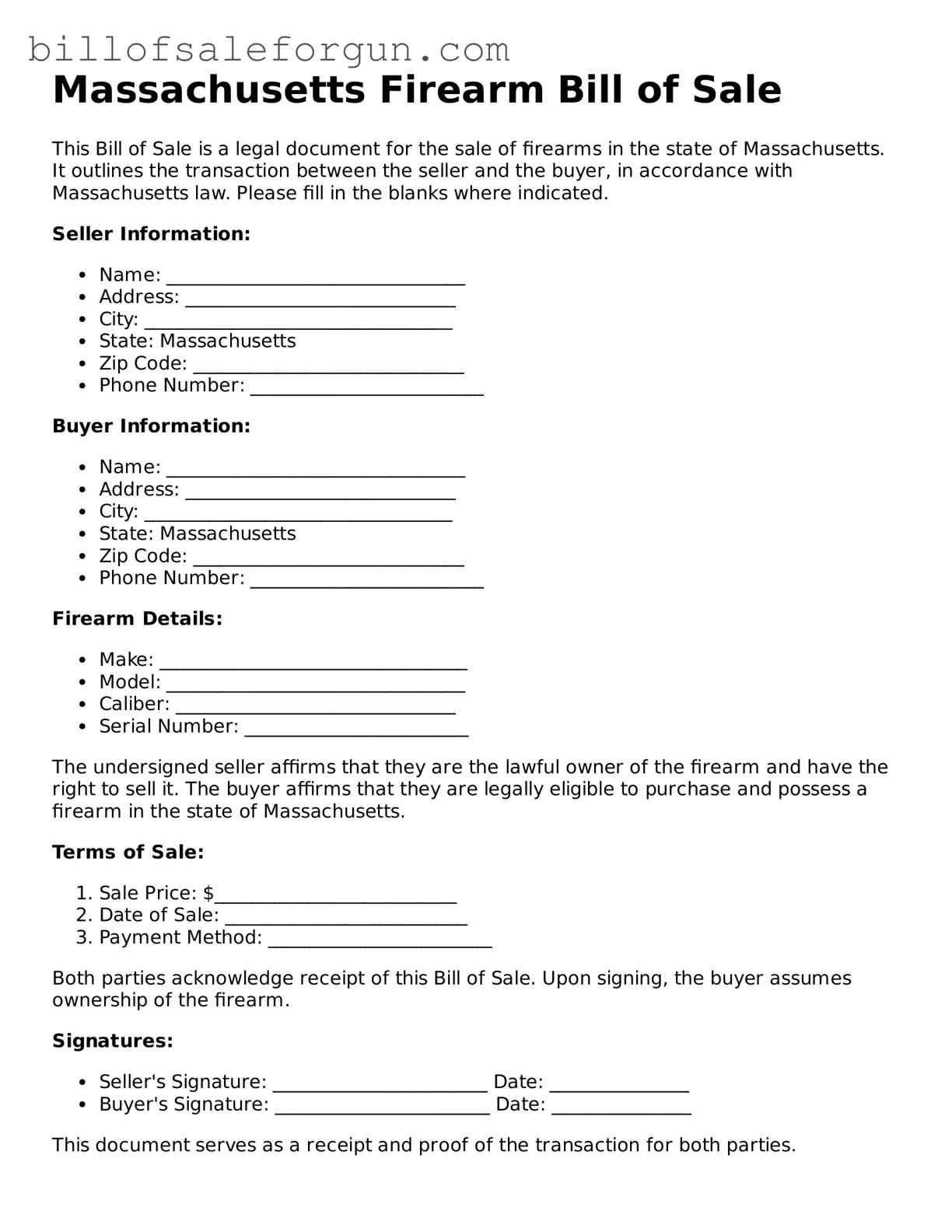Similar forms
The Massachusetts Firearm Bill of Sale form shares similarities with a standard vehicle bill of sale. Both documents serve as proof of transfer of ownership from one party to another. In the case of a vehicle, the seller provides details about the car, including its make, model, year, and Vehicle Identification Number (VIN). Similarly, the firearm bill of sale includes specific information about the firearm, such as the make, model, and serial number. Both forms require the signatures of the buyer and seller, ensuring that both parties agree to the terms of the sale and have documented the transaction for future reference.
Another document similar to the Firearm Bill of Sale is the personal property bill of sale. This form is used for the sale of various types of personal property, including electronics, furniture, or collectibles. Just like the firearm bill of sale, it includes details about the item being sold, such as its description and condition. Both documents aim to protect the interests of both the buyer and the seller by providing a written record of the transaction. They also serve as a legal safeguard should any disputes arise regarding ownership or the terms of the sale.
The lease agreement is yet another document that shares commonalities with the Firearm Bill of Sale. While a lease agreement typically involves the rental of property, both documents outline the terms of an agreement between two parties. In a lease, the landlord and tenant agree on rental terms, duration, and responsibilities. Similarly, the firearm bill of sale outlines the terms of the sale, including the price and any conditions. Both documents require signatures to confirm that both parties accept the terms laid out, providing legal protection and clarity in the transaction.
Lastly, the gift receipt can be compared to the Massachusetts Firearm Bill of Sale form. A gift receipt is often used when one party gives an item to another without any exchange of money. While a firearm bill of sale typically involves a monetary transaction, both documents serve as proof of transfer. The gift receipt details the item given and confirms that the recipient has received it. In situations where firearms are gifted rather than sold, a bill of sale may still be used to document the transfer, ensuring compliance with legal requirements and providing a record of ownership change.
